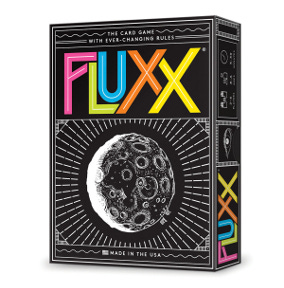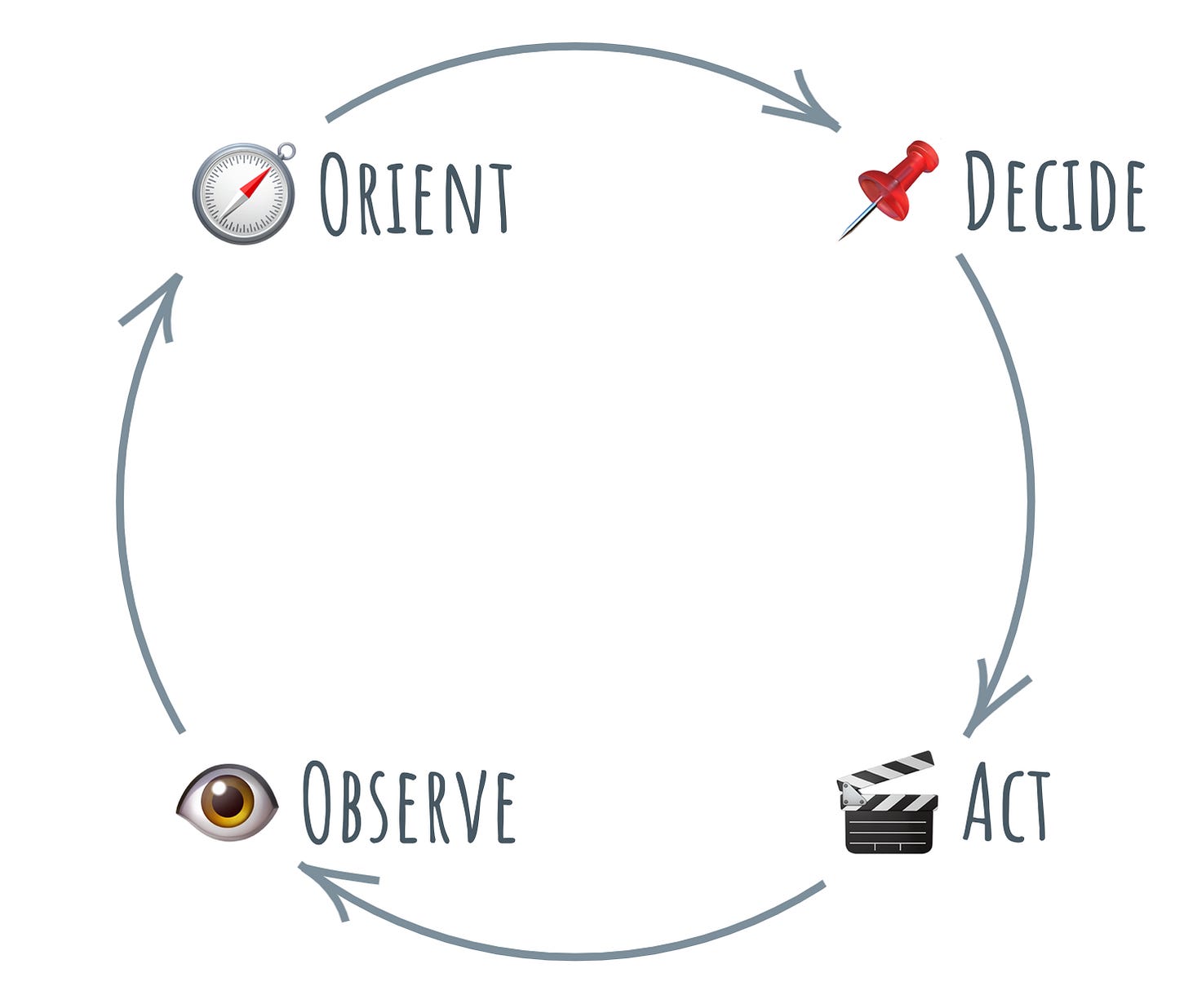🌀🗞 The FLUX Review, Ep. 19
September 9th, 2021
Episode 19 — September 9th, 2021 — Available at read.fluxcollective.org/p/19
We’re a ragtag band of systems thinkers who have been dedicating our early mornings to finding new lenses to help you make sense of the complex world we live in. This newsletter is a collection of patterns we’ve noticed in recent weeks.
“Isn’t it strange how life won’t flow, like a river, but moves in jumps, as if it were held back by locks that are opened now and then to let it jump forwards in a kind of flood?”
― Anita Desai
♟️🎲 Playful lessons in systems thinking
We can read about systems without ever getting a tacit feel for them. Fortunately, one way to build up our intuitions is through play. As Alison Gopnik explored in The Gardener and the Carpenter (check out our writeup), play is an important part of how humans learn to adapt. Board games, video games, sports, and more can build our intuition. This week, we highlight some board games that can provide playful practice for a volatile, uncertain, complex, and ambiguous (VUCA) world.
Volatility
With rule-bending special powers that change every game and interventions that can turn one round’s certain win into another round’s harrowing loss, Cosmic Encounter by Fantasy Flight Games provides a lesson in volatility. Bonus: this being the FLUX Report, we would be remiss not to mention FLUXX by Looney Labs. In this game, the rules and win conditions are constantly changing. It might be more chaotic than complex, but it’s still a lot of fun.
Uncertainty
One player is a traitor, but who? In Betrayal at House on the Hill from Avalon Hill, players must explore a mansion under the uncertainty that one of them — no one knows who — will be revealed as the traitor. Eventually, the haunting begins and the innocents must figure out how to defeat the traitor in one of dozens of unique scenarios.
Complexity
With slow starts that eventually build up to explosive feedback loops, engine building games help us explore complexity. In Wingspan from Stonemaier Games, you build up a tableau of birds living in different habitats. Build the most effective bird engine to win the game! (And learn some interesting bird facts along the way.)
Ambiguity
Ambiguity takes center stage in hidden role games. In the oft-republished Coup from designer Rikki Tahta, what you can do depends on your roles, but no one knows what roles you have. You can lie your way to power, but watch out: if you’re caught too many times, you’re out of the game.
🛣️🚩 Signposts
Clues that point to where our changing world might lead us.
🚏🏚 Goldman Sachs warns that 750,000 US households could face evictions
After the Supreme Court struck down the US’s latest eviction moratorium, Goldman Sachs warned that 750,000 American households could face eviction by the end of 2021. The bank estimated that between 2.5 million and 3.5 million households were “significantly behind on rent,” owing a total of $12 to $17 billion.
🚏🛹 Roblox is launching a metaverse region for skateboarding fans
In partnership with the popular skateboarding brand Vans, Roblox announced Vans World, an interactive, 3D playground where players can skate around city streets, level-up their virtual skating skills, and hang out with friends. This miniature world, which connects to the broader Roblox metaverse, includes digital replicas of popular skateparks and real-life Vans stores.
🚏🇨🇳 China will crack down on online posts that are “harmful” to its economy
In a bid to create a “benign” online environment that’ll help the country’s economy grow, the Chinese government will require social media platforms and commercial websites to take down content that “maliciously” criticizes Chinese financial markets or “falsely interprets” government policies and economic data.
🚏💳 Mastercard is retiring the magnetic stripe on its credit cards
Citing the improved security and functionality of chip cards, Mastercard has announced that, starting in 2024, newly-issued cards in Europe will no longer be required to have old-school magnetic stripes; the phaseout will begin in the US in 2027. By 2029, all new Mastercard credit and debit cards will be stripeless. The company added that smart chips are already used for 86% of all credit card transactions.
🚏🚛 The US is facing a severe trucker shortage, threatening the economic recovery
The pandemic has massively increased the demand for shipped goods, but it’s also spurred many truckers to retire early. What’s more, 2020’s lockdowns made it hard for aspiring drivers to go to school and get licensed, and restrictive immigration policies have sharply reduced the number of foreign workers who can come in and fill the vacancies. One immigration agency executive commented that “we’re living through the worst driver shortage that we’ve seen in recent history, by far,” as trucking prices have soared, shortages have mounted, and supply chains have faltered.
🚏👩🏽🚀 Fortnite copied the popular Among Us game, the latest in a long line of clones
Fortnite’s new “Imposters” gameplay mode is almost the same as the popular social deduction game Among Us, leading to accusations of ripping off the smash hit. But it’s not the first time that Fortnite has borrowed heavily from other popular games in its quest to become the ultimate entertainment platform: its Creative mode, launched in 2018, was inspired by Minecraft, while its famous battle-royale mode drew heavily from PUBG.
📖⏳ Worth your time
Some especially insightful pieces we’ve read, watched, and listened to recently.
Gimme the Loot! (Collisions) — Explores the rise of Loot, a new “NFT improv” project where the founding team minted simple tokens with attached lists of text and let the community take over from there. In just a few days, crypto enthusiasts organically started selling art representing the items in the lists, creating rules to make a game out of the items, and unbundling the lists and creating markets to buy and sell the items individually.
Questions About Trees (Bit Player) — Combines interactive mathematical models with storytelling to investigate why forests have such a diversity of tree species despite classical ecological theory telling us that one species should come to dominate the rest.
Cathie Wood and Content Strategy (Margins) — A former trader explains how Wood, the head of the investment firm ARK, has “hacked” the financial press’s thirst for clickbaity trading news to pump up the prices of stocks in ARK’s famous ETFs.
Maybe You Missed It, but the Internet ‘Died’ Five Years Ago (The Atlantic) — Describes a conspiracy theory that claims that humans abandoned the internet in 2016 and all content since has been created by AI. The author then argues that believers in this theory sort of have a point, given how bots, algorithms, and the “Extremely Online” crowd dominate so much of online discourse.
Why Japan’s Rail Workers Can’t Stop Pointing at Things (Atlas Obscura) — Examines the seemingly-silly tradition of pointing and shouting practiced by Japanese train workers; by making workers more conscious of their tasks and safety checks, the method reduces workplace errors by up to 85%.
How Mushroom Time-Lapses Are Filmed (WIRED) — An interview with a filmmaker who makes time-lapse videos of fungi and flowers growing. Includes spectacular footage of mushrooms sprouting and networks of cells growing and branching, and musings on the intelligence of nature and the nature of time.
📚🌲 Book for your shelf
An evergreen book that will help you dip your toes into systems thinking.
This week, we recommend Unflattening by Nick Sousanis (2015, 208 pages).
This book is a spellbinding experiment of fusing words and images. It is a rallying cry against “flatness,” our self-imposed limits on thinking — with the tantalizing promise of additional dimensions just beyond our reach. Every page is brimming with generative energy, an invitation to depart from the known and let go of the constraints. Images and text blend together, connected through pages though allegories and hidden references. Though loosely woven together, each chapter is a nearly independent tale, something that can be enjoyed in small doses or inhaled all at once. Unflattening is a stunning work of art, and a glorious ode to storytelling.
🕵️♀️📆 Lens of the week
Introducing new ways to see the world and new tools to add to your mental arsenal.
This week’s lens: the OODA Loop.
In a VUCA world, the name of the game is low-latency feedback loops: being able to observe and act as quickly as possible. Introduced by John Boyd in a military environment, the OODA loop is a lens that might just help you find your footing amidst unpredictability.
The silly-sounding mnemonic contains the necessary ingredients for a low-latency feedback loop: Observe to take in external information and the surrounding context, Orient yourself within this information (which often requires you to discard previously-held hypotheses), Decide on the most likely hypothesis, and Act on this hypothesis, preparing to begin the cycle anew. Especially in contexts where predictability is low to non-existent, the key is reducing the duration of the cycle to the point where it’s as fast as, or even faster than, the clock of the environment. For example, if you’re a fighter pilot, that clock is driven by your opponent’s own OODA loop. Through this lens, a VUCA environment can be seen as the duel of OODA loops. If you can spot the OODA loop that sets the pace, you can find your way to thrive in that environment.
🔮📬 Postcard from the future
A short ‘what if’ piece of speculative fiction about a hypothetical future that could result from the forces changing our world.
// In the spirit of Labor Day, unions, and “the folks who brought you the weekend,” this week’s speculative postcard applies a “power to the people” lens when looking at the future.
// Excerpt from “History of Labor in the Early 21st Century,” Chapter 4
In the labor market of the early 2020s, industry held most of the cards. Industry had many of the informational advantages, from interviewing, to compensation negotiation, to performance and promotion processes. Union membership had been declining for the past 4 decades — in 1983, 20.1% of US workers were union members, whereas by 2020 the figure was down to 10.8%. Labor bargaining power had dropped as well, though some efforts, such as levels.fyi, took aim at this information disparity in an effort to bring more transparency and equity to the process.
These efforts continued to be piecemeal until the fall of 2024, when a long drinking session combined with the available crypto development tools. The breakthrough insight that came out was the nature of the information disparity: employees individually had incredibly valuable information, but it was siloed and took a long time to propagate, and employees had few incentives to share it.
That’s where cryptocurrency tools came in. Rather than using spare compute to mine cryptocurrency — thereby consuming huge amounts of electricity and generating significant carbon dioxide loads (191 tons of carbon to mine a single bitcoin) — the drinking friends realized that value could be created when people submitted employment information.
The more interview questions, compensation information, self-evaluations, and promotion packet feedback someone contributed, the more cryptocurrency they’d earn.
Why would people share this information? So that they could spend that crypto to gain an information edge in key situations. Get the latest interview questions for a given company. See successful promotion packets from the last cycle. See packets being submitted this cycle (for a large enough fee).
And that’s how PerfCoin launched in October 2024.







